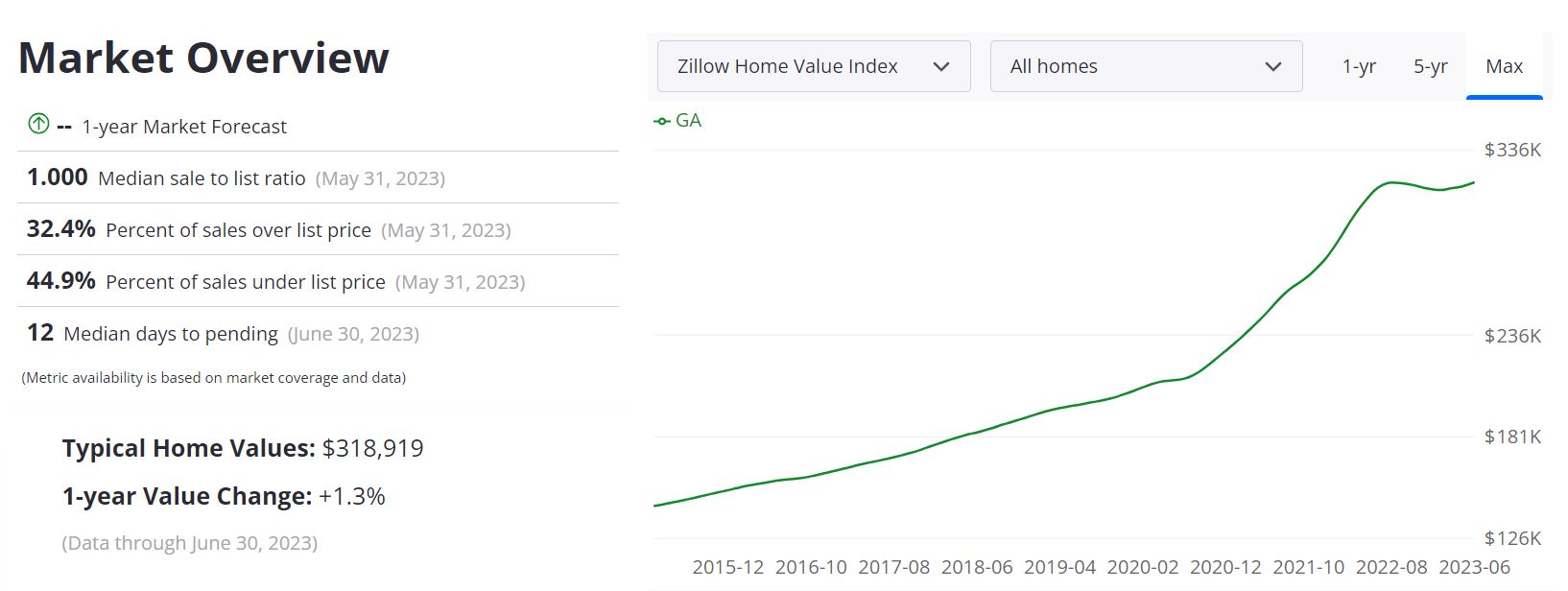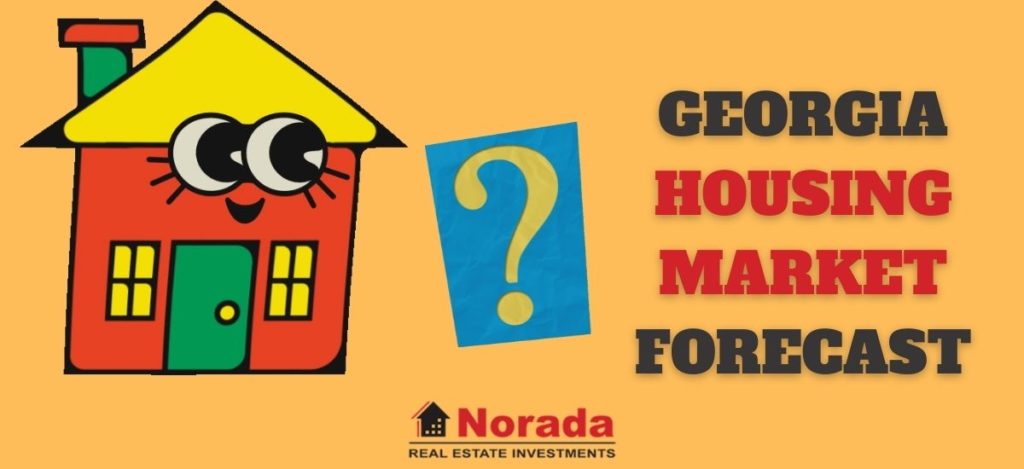Navigating the Georgia Rental Market: A Comprehensive Guide
Related Articles: Navigating the Georgia Rental Market: A Comprehensive Guide
Introduction
With great pleasure, we will explore the intriguing topic related to Navigating the Georgia Rental Market: A Comprehensive Guide. Let’s weave interesting information and offer fresh perspectives to the readers.
Table of Content
Navigating the Georgia Rental Market: A Comprehensive Guide

Georgia, with its diverse landscape, thriving economy, and vibrant culture, draws individuals and families seeking a new home. The state’s housing market, particularly the rental sector, offers a wide range of options to accommodate various needs and budgets. This comprehensive guide aims to provide an in-depth understanding of the Georgia rental market, equipping prospective renters with the knowledge and tools necessary to make informed decisions.
Understanding the Georgia Rental Landscape:
Georgia’s rental market is dynamic and diverse, reflecting the state’s unique geographic and demographic features. From bustling urban centers like Atlanta to charming coastal towns and rural communities, the state presents a spectrum of rental options.
Factors Influencing Rental Prices:
Several key factors influence rental prices in Georgia:
- Location: Urban areas, particularly within popular neighborhoods, tend to have higher rental rates due to demand and proximity to amenities. Conversely, rural areas or less developed communities often offer more affordable options.
- Property Type: Apartments, townhouses, single-family homes, and duplexes vary in price based on size, amenities, and age.
- Amenities: Features such as in-unit laundry, parking, pet-friendliness, and community amenities directly impact rental costs.
- Market Demand: High demand in specific areas or for particular property types can drive up rental prices.
- Seasonality: Rental rates may fluctuate slightly based on seasonal demand, typically higher during peak tourist seasons.
Types of Rental Properties in Georgia:
- Apartments: The most common rental type, apartments offer various sizes and configurations, often within multi-unit buildings.
- Townhouses: Combining the advantages of single-family living with a shared community, townhouses offer a balance between privacy and convenience.
- Single-Family Homes: These detached homes provide complete independence and privacy, often attracting families or individuals seeking more space.
- Duplexes: These two-unit homes offer a cost-effective option, often appealing to individuals or small families.
- Condominiums: Individually owned units within a larger complex, condominiums offer amenities and community features while maintaining a sense of ownership.
Finding the Right Rental Property:
- Online Marketplaces: Websites like Zillow, Apartments.com, and Trulia offer extensive listings, allowing users to filter by location, price, and desired features.
- Real Estate Agents: Local agents specialize in the rental market, providing personalized guidance and access to off-market listings.
- Direct Contact with Landlords: Many landlords list properties directly on their websites or through local publications.
- Networking: Utilizing personal connections and local community resources can uncover hidden rental opportunities.
Essential Considerations for Renters:
- Budget: Determine a realistic rental budget, considering factors like income, expenses, and desired lifestyle.
- Location: Evaluate the proximity to work, schools, transportation, and desired amenities.
- Property Type: Consider the size, layout, and amenities that best suit individual needs.
- Lease Terms: Understand the lease duration, renewal process, and any associated fees or penalties.
- Landlord Reputation: Research the landlord’s history and reputation for responsiveness and maintenance.
Common Rental Agreements and Terms:
- Lease Agreement: A legally binding contract outlining the terms of the tenancy, including rent amount, duration, and responsibilities.
- Security Deposit: A refundable sum held by the landlord to cover potential damages.
- Rent Payment: Understand the payment schedule, accepted methods, and late payment penalties.
- Maintenance Responsibilities: Clarify the landlord’s responsibilities for repairs and maintenance.
- Pet Policy: If applicable, confirm pet-related policies, restrictions, and any associated fees.
Tips for Finding a Suitable Rental:
- Thorough Research: Utilize online resources, contact local agents, and network within the community to identify suitable properties.
- Clear Communication: Express your needs and expectations clearly to potential landlords.
- In-Person Viewings: Schedule in-person viewings to assess the property’s condition and surrounding neighborhood.
- Background Checks: Understand the landlord’s background check requirements and ensure compliance.
- Negotiation: Be prepared to negotiate lease terms, including rent, security deposit, and pet policies.
Understanding Tenant Rights and Responsibilities:
- Fair Housing Laws: Familiarize yourself with federal and state fair housing laws protecting tenants from discrimination.
- Landlord Access: Understand the landlord’s right to access the property for legitimate purposes, such as repairs or inspections.
- Lease Termination: Understand the process for terminating the lease, including notice periods and potential penalties.
- Security Deposit Return: Be aware of the process for receiving your security deposit back upon lease termination.
FAQs about Renting in Georgia:
-
What is the average rent in Georgia?
- Average rental prices vary significantly based on location, property type, and amenities. Consult online resources or contact local real estate agents for specific area estimates.
-
What are the essential documents required for renting?
- Landlords typically require proof of income, credit history, and identification. Additional documents may be requested based on the specific property and lease terms.
-
What are the legal requirements for landlords in Georgia?
- Georgia law mandates certain landlord responsibilities, including providing a safe and habitable living environment, maintaining essential utilities, and responding to tenant requests for repairs.
-
What are the tenant’s responsibilities in Georgia?
- Tenants are obligated to pay rent on time, maintain the property in a reasonable condition, and adhere to the terms of the lease agreement.
-
What are the consequences of violating the lease agreement?
- Lease violations can result in eviction proceedings, financial penalties, and damage to future rental prospects.
Conclusion:
Navigating the Georgia rental market requires careful planning, thorough research, and a clear understanding of tenant rights and responsibilities. By utilizing the strategies and resources outlined in this guide, prospective renters can make informed decisions, find suitable properties, and secure comfortable and enjoyable living arrangements in the Peach State.








Closure
Thus, we hope this article has provided valuable insights into Navigating the Georgia Rental Market: A Comprehensive Guide. We hope you find this article informative and beneficial. See you in our next article!